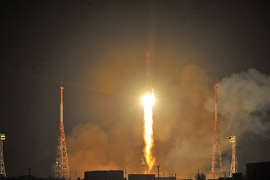
Considering what has happened to dozens of industries, hundreds of factories and research institutes throughout the former USSR, the existence of the Russian space program is an incredible miracle. The fact that the Soviet space survived Perestroika and the collapse of the USSR is contrary to any historical logic.
The system continues to work almost perfectly, without disasters or even significant failures. That against the background of the obvious failure, for example, of the program of “revival” of domestic civil aviation, cannot but amaze.
Citizens, who disdainfully twist their faces at the phrase “Roscosmos”, should bear in mind that humanity still flies into space exclusively thanks to the Russians and Americans. And to the Chinese, of course, who are struggling to prove that they too are a superpower.
The rest of the “civilized world” is interested in space exclusively in the format of simple communication satellites and, possibly, space tourism.
For example, Britain on Thursday announced the creation of the United Kingdom Space Command.
The British closed the space program back in 1971, after they launched the only British satellite with the help of a British rocket into an orbit about 200 kilometers high.
The first British astronaut, Helen Sharman, flew into space on a Soviet rocket to the Soviet Mir station in May 1991.
The whole country collected money to finance the flight, but they still did not have enough, well, or the British simply decided to save money, reasoning logically that the USSR was almost over anyway and there would be no one to ask them for money.
And so it happened – Gorbachev ordered the Englishwoman to be taken into space at the expense of the Soviet side (who would doubt it).
The second Briton, Tim Peak, flew into space in 2015 on the ISS, but again on the Russian Soyuz TMA-19M rocket as an astronaut of the European Space Agency (ESA). The story is also rather dark, as the British refused to fund the International Space Station due to the high cost.
And now, immediately – Space Command. No more no less. And it will be led by a whole vice marshal of aviation.
There are not many details about the plans of the new command. Probably, like Americans, they will also start by designing a beautiful logo. The planned £ 1.4 billion over 10 years for the design should be enough, although given the history of “British astronautics”, funding will certainly be reduced or canceled altogether in a year or two.
Have you heard a lot about the French, German or Japanese space programs? Here I am nothing.
Manned space remains a legacy of the good old XX century, more precisely, the Cold War. There would be no ideological confrontation between systems, and Stalin and Khrushchev, who were ready to keep the whole country from hand to mouth if only Gagarin became the first cosmonaut, you would still go to the wooden planetarium and read the novel “From a Cannon to the Moon”.

